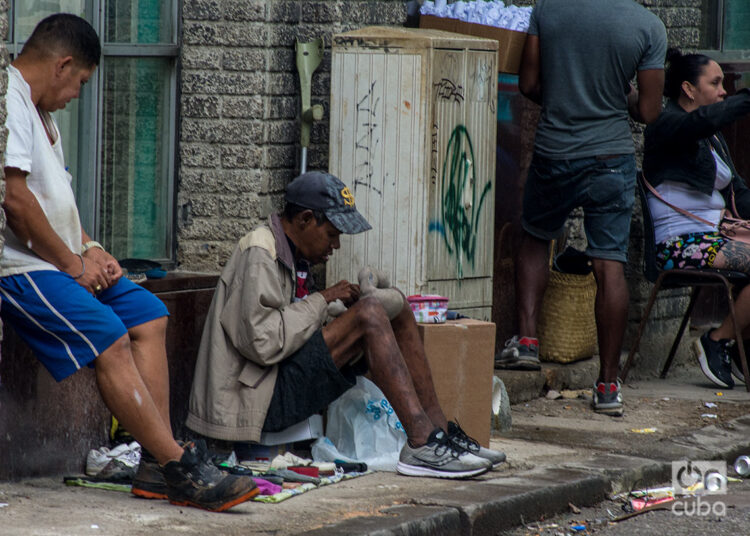The Gaceta Oficial de la República de Cuba published four new regulations this Monday to improve care for homeless people, as well as other community social services.
In a press conference with official media on the island, Belkis Delgado Cáceres, Director of Prevention, Assistance, and Social Work of the Ministry of Labor and Social Security (MTSS), addressed the impact of these measures on society.
According to the official, one of the regulations outlines the procedure to follow when caring for homeless people, which, she said, improves the process currently in place for these cases.
Delgado Cáceres noted that the other three regulations relate to care services for other vulnerable groups.
“These services include telecare, home social assistance, and support for families caring for people with severe disabilities,” the official emphasized in statements to official media.
According to Cubadebate, the MTSS official added that the new measures “will have a positive impact on people with disabilities, older adults living alone, and their families.”
Delgado Cáceres said that these regulations are part of the National System for Comprehensive Life Care, services that have existed since 2003, and which are now being expanded and improved, she told the press.
Poverty in Cuba: What is happening with the homeless?
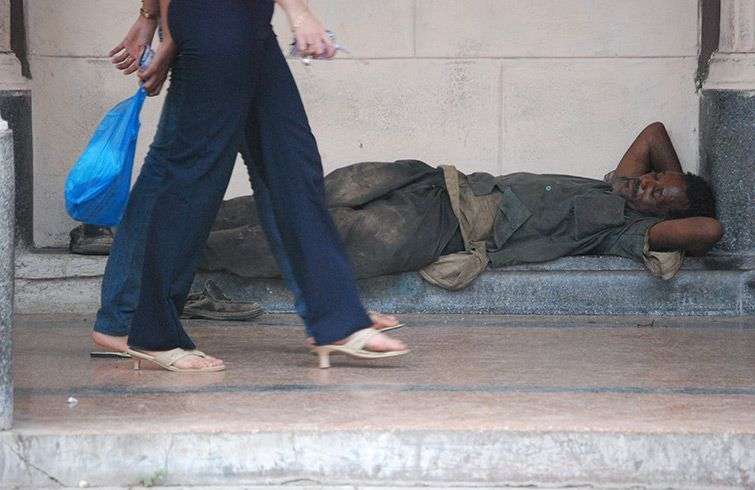
The document published in the Gaceta Oficial establishes the term “wandering behavior” to refer to homeless people living on the streets, an image that has become increasingly common in recent years and has worsened following the pandemic.
According to the Gaceta, “it constitutes a way of life characterized by instability and insecurity at home.”
The document also notes that this way of life is also characterized by a “lack of self-care and economic autonomy, family care or support, as well as a favorable life project, or a combination of these factors, which is usually evident in the violation of the coexistence and social discipline regulations.”
According to Cubadebate, which quotes the official, Delgado Cáceres emphasized that the agreement is novel in that it conceptualizes “wandering behavior and the actions of those who, without having an associated intellectual or mental disability, refuse prophylactic work.”
Responsibilities and obligations
The MTSS official explained to Granma newspaper that the governor of each province is responsible for coordinating care for “people with wandering behavior.”
Likewise, governors, through their respective structures, must provide temporary solutions such as transitory shelters, housing allocation, and approval of subsidies for the repair or construction of homes for these homeless people.
Delgado Cáceres added that, for its part, each Municipal Administration Council is responsible for preventing, identifying, and controlling matters related to wandering people.
In this regard, she said that the municipal mayor is responsible for forming and chairing multidisciplinary teams at the municipal level, “which is where the problem really lies.”
Referring to people who wander in territories other than their place of origin, the director indicated that they will be returned to their place of residence.
Crisis and daily life in Cuba: What does street sociology say?
Poverty in Cuba: And what about minors?
Regarding the members of each municipality’s multidisciplinary team, the MTSS official emphasized that they include social workers, as well as representatives from Public Health and the Revolutionary National Police (PNR), Granma reported.
“When the person is a minor, the General Department of Education and officers from the Ministry of the Interior’s Juvenile Directorate are also included,” she explained.
Delgado Cáceres added that when the wandering individuals are minors, the mayor can, at the request of the rest of the team when necessary, ask for the intervention of the Attorney General’s Office and the Municipal People’s Court.
How are wandering individuals, including minors, identified?
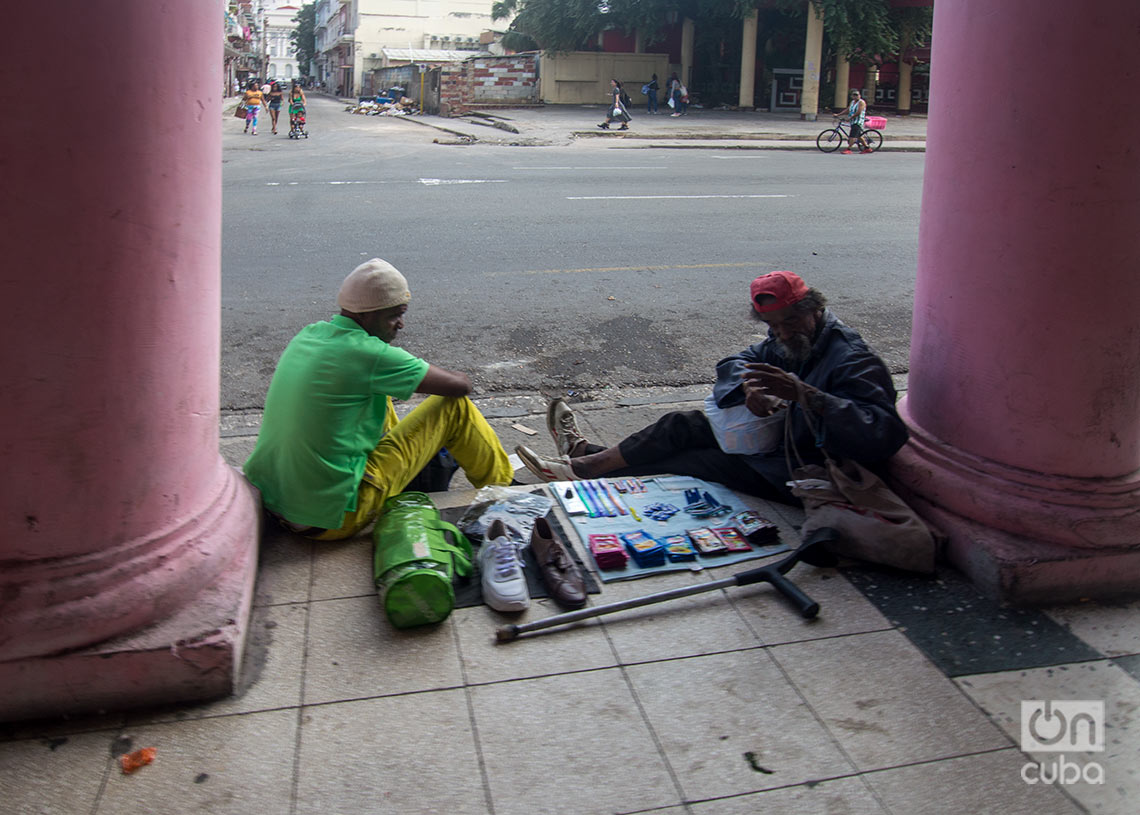
Delgado Cáceres explained that the identification of people with wandering behavior, or at risk of developing it due to a lack of family support, is carried out by social workers, doctors, and nurses at community family doctor offices.
She noted that if a community member detects a minor living on the streets, they must immediately report it to the competent authorities of the Ministry of Education or the Ministry of Public Health.
These institutions, she said, must guarantee their placement in a social assistance center, provided there is no relative or other close person who can take responsibility for the minor.
In addition, the Prosecutor’s Office must be notified, which will initiate the necessary investigations or adopt protective measures to determine whether there has been a breach of parental responsibilities.
What are Social Protection Centers?
The official also referred to Social Protection Centers, where wandering people are temporarily housed: “These centers aim to contribute to the rehabilitation and social reintegration of people with wandering behavior.”
According to Granma, these centers serve people who, for various economic and social reasons, are homeless, abandoned, or lack family members “in a position to provide help” within a period of up to 90 days.
At the meeting, the MTSS official revealed that nine social protection centers have been created to date in the provinces of Pinar del Río, Havana, Matanzas, Villa Clara, Ciego de Ávila, Camagüey, Holguín, Granma, and Santiago de Cuba.
Delgado Cáceres added that the creation of these facilities is being evaluated in the remaining provinces.
Poverty in Cuba: Reintegration of wandering people
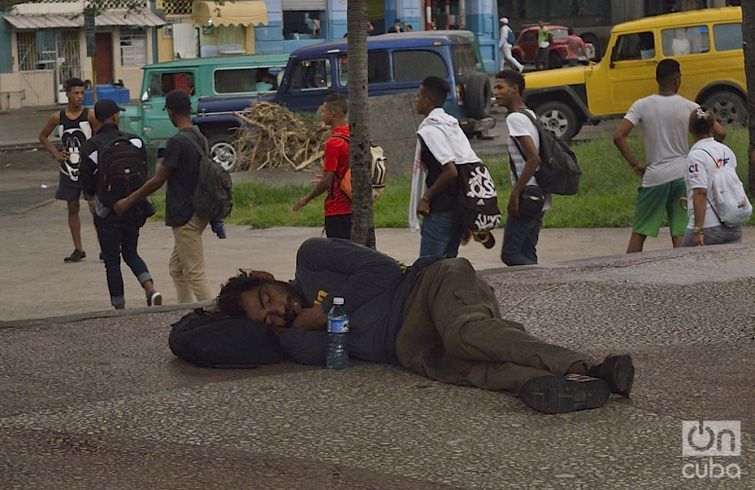
Regarding strategies for a sustainable solution, it was emphasized that the objective is not to keep a person permanently in these centers, but rather to offer them the means to reintegrate into their social environment.
For example, in the case of older adults who lack family support, their placement in nursing homes is considered if necessary.
However, care for people under 60 years of age has different characteristics.
The center is responsible for promoting actions that encourage labor and social integration, in addition to supporting addiction rehabilitation, as many of the people housed there have lost everything due to drug or alcohol problems.
Comprehensive evaluation and care are also provided by health personnel, Granma said.
According to a 2024 report, the most recent to date, a total of 3,690 people had been identified as wandering from 2014 to September 2023.
Cuban authorities have recognized the seriousness of the situation in a context of severe economic crisis, which increasingly affects people living in poverty in Cuba.
Although this was not a common sight in Cuba before 2020, the truth is that after the pandemic and the worsening of the country’s economic and social crisis, it is a growing problem that has not been resolved.
Other regulations: What are community social services?
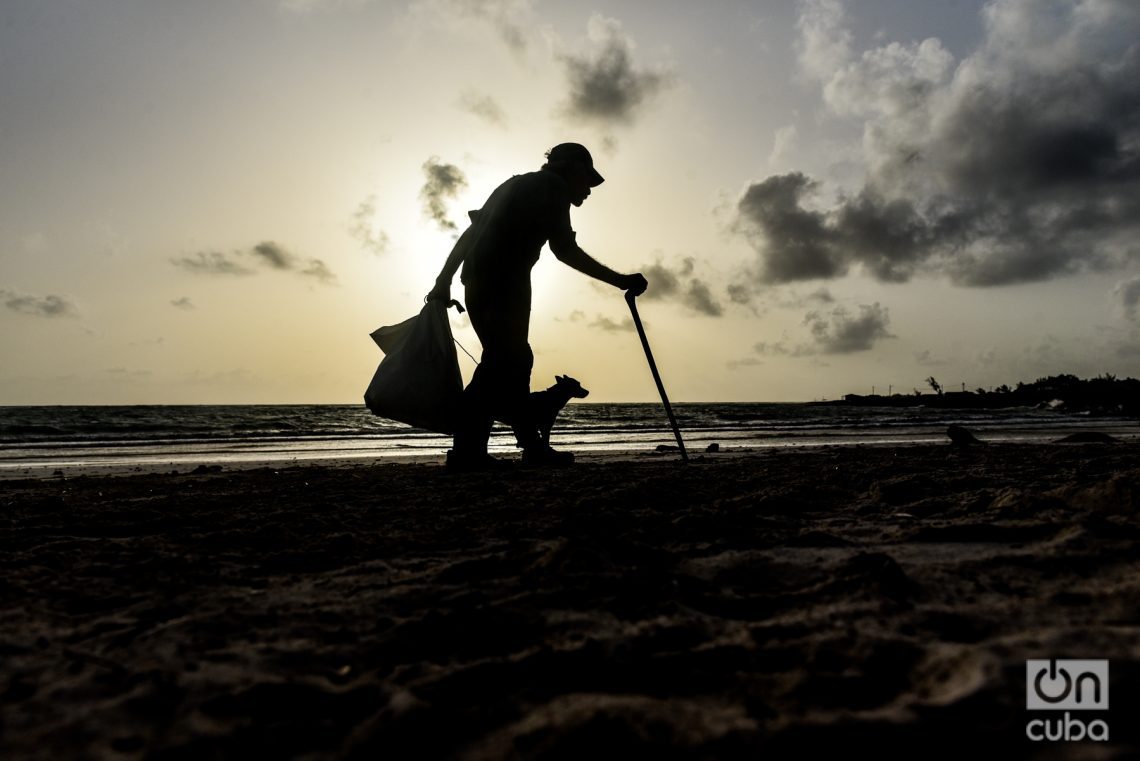
The other three regulations published in the Gaceta Oficial are related to community social services.
In statements to Cubadebate, Delgado Cáceres explained that one of these agreements regulates home social assistance services.
She said that it is aimed at people who, due to age, illness, or disabilities, cannot care for themselves to carry out daily activities and do not have family members who can assist them.
Delgado Cáceres specified that the service is provided directly in the beneficiaries’ home, allowing them to remain in their usual environment and meet their basic needs — both biological and psychological, communicative and social — in addition to facilitating their access to community services.
She highlighted as a novelty that this agreement recognizes caregiving as a form of work, in line with the principles of the National System for Comprehensive Life Care. It also establishes the conditions under which the service can be provided on an exceptional basis.
The official also reported that the service will be partially funded by the social responsibility fund, which is comprised of voluntary reserves from economic entities.
It also includes the training and pre-certification of social workers, and establishes that the cost of the service will be shared equally between the family and the State.
Telecare and children with severe disabilities
On the other hand, Agreement 10068/2025 regulates the telecare service, a modality designed to promote the autonomy and well-being of dependent people due to age, illness, or disability.
According to the MTSS official, this service allows for constant monitoring and a rapid response to potential risk situations, both for dependent people and their caregivers.
This type of care is primarily intended for older adults or vulnerable people who live alone all the time or for a large part of the day, or who live with others in similar conditions.
Delgado Cáceres stated that a pilot test of the telecare service will begin in selected municipalities in five provinces: Havana, Artemisa, Mayabeque, Santa Clara, and Santiago de Cuba.
Subsequently, and after evaluating its results, it will be gradually extended to other regions of the country, she confirmed.
Finally, she mentioned some Decree 121/2025 provisions, which address care services for families with children with severe disabilities.
This decree recognizes caregiving as work, updates existing services, expands the beneficiaries following the new Family Code, and defines access requirements along with the responsibilities of the institutions involved.
- Read the Gaceta Oficial here.

